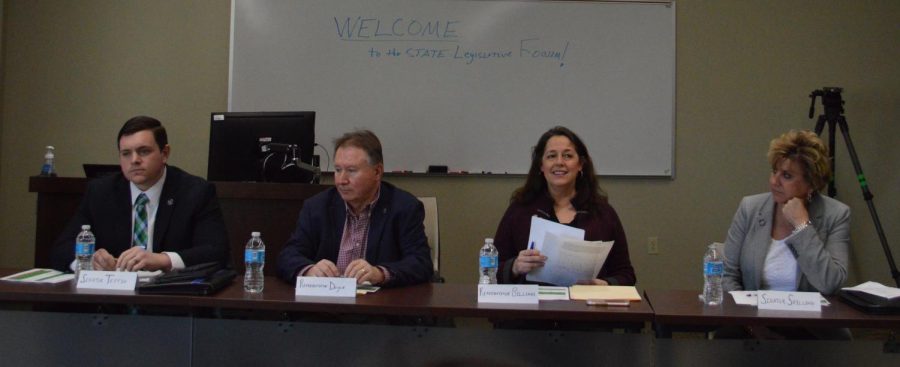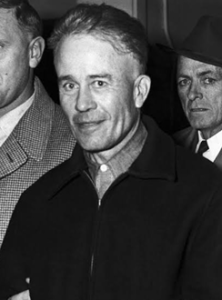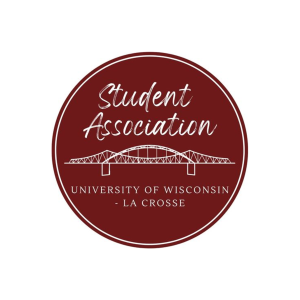UWL Welcomes Politicians to Campus to Discuss Top Issues
February 21, 2018
Students, staff and locals welcomed Wisconsin Representative Jill Billings, Representative Steve Doyle, Senator Jennifer Shilling and Senator Patrick Testin to the University of Wisconsin-La Crosse campus on Friday afternoon for a legislative forum, enabling area residents to learn more about the political actions that are currently affecting them.
To the first question that was asked, if it was worth having the University of Wisconsin system in the state, Shilling exclaimed, “Yes. Yes, of course,” with others in the panel commenting that it was an easy question. “Certainly, the university is like the economic driver in many of our communities in the state. It’s the idea engine. It’s where research is happening,” Shilling continued. “It’s a great opportunity for the exchange of ideas. The fact that you, as students, play an important role in our community and volunteering the service that you have, the goods that you provide, the rental properties that you rent from. I mean it is all a part of the local economy.” All members of the panel praised the universities and the benefits they have towards Wisconsin.
Next, the University of Wisconsin-Madison’s plan to fund students’ educations if their families come below a certain income threshold was brought up.
Doyle commented the state has not kept up well with helping students be able to pay for the raising tuition prices. He praised the idea of having university’s help pay for low-income students, but he hopes that the project will not lower the standards of the school.
According to Shilling, the project was expected to cover 800 students and will only cover the basic tuition cost. She looks forward to seeing how this may create a more diverse student body.
Billings noted, “I would like a more comprehensive look at this so that all the UW system schools can be a part of it.”
Testin agreed the program is innovative but will likely include some growing pains.
The topic of Foxconn was brought to the table, causing some controversy, as Testin had supported the political measures that were in support of it, while the other three politicians had opposing views on it.
Shilling opened the conversation by stating she suspects the deal, worth over four million dollars, “won’t materialize to the numbers that have been promised.”
According to Billings, the deal will set a precedent that other companies will want, followed by a statement from Doyle that it was risky to put such funds to one company alone.
Testin asserted that he spoke with companies and citizens across the state who saw great opportunity within the deal and that the government has worked to adapt the deal to the wants of the people. He said, “I see opportunity if this is successful.”
Following Foxconn, K-12 education was discussed. The panel agreed that the government should promote connections between students and local companies, high-quality teachers and consistency within school regulations.
The removal of shared governance was the next subject on the table. Doyle said student governments enables fresh faces to help make decisions and that the university was taking a backward step by removing shared governance. Billings, Shilling and Testin supported his statement and emphasized the importance of shared governance.
The panel next took on the right to work law. Testin was in support, as he recognized that no one should be required to join unions. The other three panel members opposed, as they stressed the benefits of unions and that unions must be taken seriously.
Finally, the politicians mentioned their support of universities being able to control the freedom of speech within campuses, instead of an assembly in Madison that attempted to create a bill which would limit students’ abilities to vocalize their thoughts. They noted that it’s important to protect the rights of students to give their opinions, and students should not be penalized for doing so.
“Rudeness is protected under the first amendment in my opinion,” Doyle concluded.






